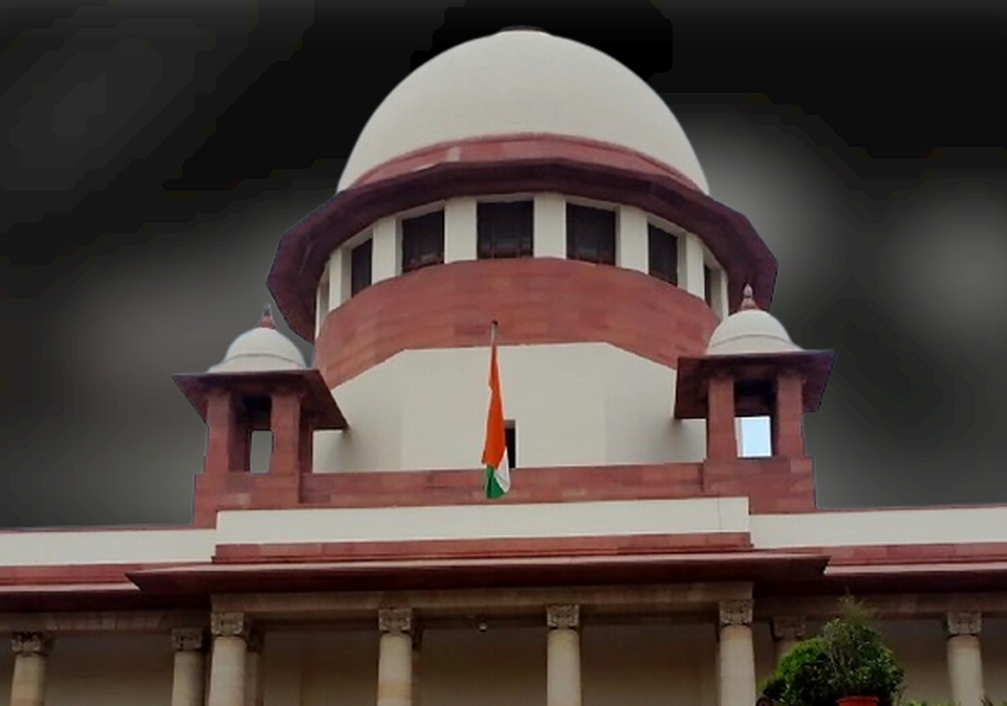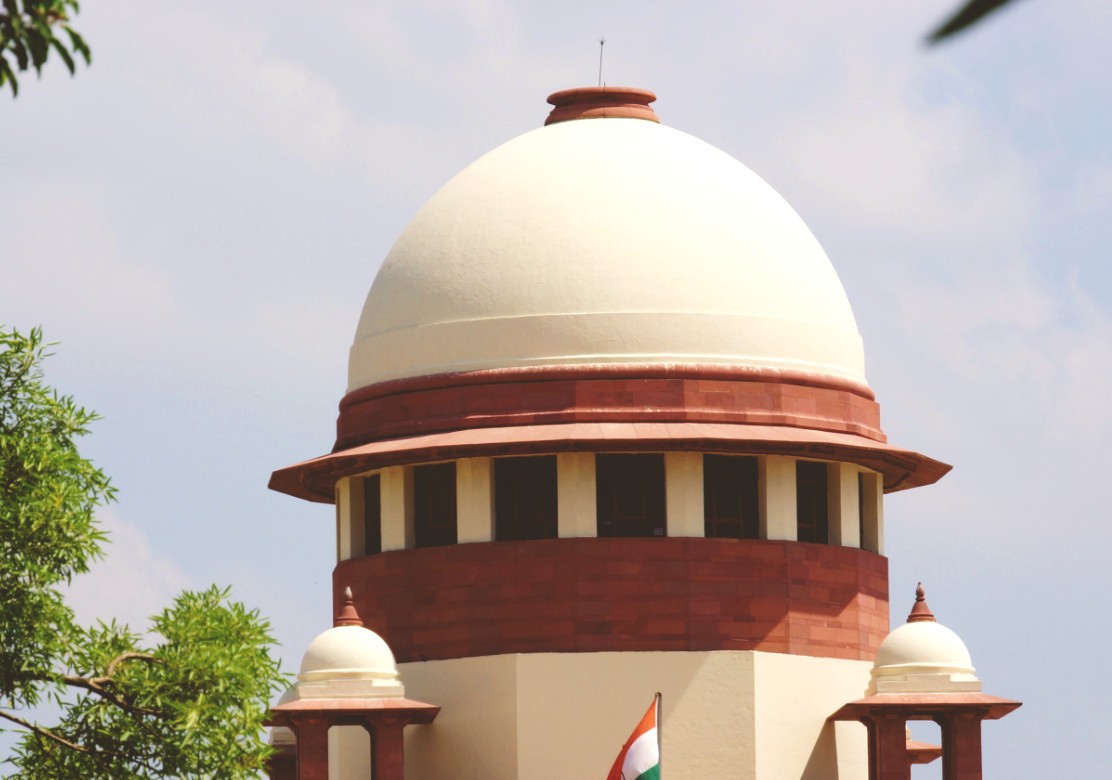State Legislature has legislative competence to impose & collect stamp duty on insurance policies: SC dismisses LIC’s appeal, however asks State Govt not to collect stamp duty as per orders issued in 2004
Justices Pamidighantam Sri Narasimha & Aravind Kumar [30-04-2024]

Read Order: LIFE INSURANCE CORPORATION OF INDIA v. THE STATE OF RAJASTHAN AND ORS [SC- CIVIL APPEAL NO. 3391 OF 2011]
Tulip Kanth
New Delhi, May 2, 2024: While observing that the State of Rajasthan has the power and jurisdiction to levy and collect stamp duty on policies of insurance issued within the state, the Supreme Court has rejected the contention of Life Insurance Corporation regarding the lack of legislative competence of the state. However, the Top Court has granted relief to the appellant-Corporation by directing the State Govt to refrain from collecting stamp duty as per the orders issued in 2004.
The factual background of this case was that the appellant issued various insurance policies within the state of Rajasthan between 1993-94 and 2001-02. As per the prevailing law relating to stamp duty, the appellant was required to affix stamps by paying stamp duty on the policies of insurance issued by it in accordance with the Indian Stamp Act, 1899, as adapted to the state of Rajasthan by the Rajasthan Stamp Law (Adaptation) Act, 1952.
In 1991, the appellant wrote to the Collector regarding the non-availability of Agents License Fee stamps. Thereafter, the Inspector General (Registration and Stamps) Rajasthan issued a letter to the appellant to deposit a sum of Rs. 1.19 crore for causing loss of revenue to the state of Rajasthan as it had purchased insurance stamps between 1993-94 and 2001-02 from the state of Maharashtra for insurance policies that were issued within the state of Rajasthan. Pursuantly, the Additional Collector (Stamps), Jaipur issued a show-cause notice under Section 37(5) of the Rajasthan Stamp Act, 1998 for payment of the amount. On 16.09.2004, the Additional Collector (Stamps) confirmed the show-cause notice and directed the appellant to deposit the amount. Similar orders were passed on 16.10.2004 for Rs. 1.07 crores, 11.10.2004 for Rs. 1.18 crores, 01.11.2004 for Rs. 1.87 crores, and 28.10.2004 for Rs. 43.68 lakhs.
The appellant filed a writ petition challenging the order of the Additional Collector which came to be dismissed by the High Court on the ground that the appellant had an alternative efficacious remedy of filing a revision under Section 65 of the Rajasthan Stamp Act. Later, the appeal was restored and decided in the impugned judgment by which the order of the Collector dated 16.09.2004 was upheld.
Referring to the timelines in the case, the Bench opined that at the time when the relevant instruments were executed, the Rajasthan Stamp Law (Adaptation) Act, 1952 was still in force and the stamp duty was leviable under the same.
It was further explained by the Bench that Insurance policies, which are the relevant instrument for the purpose of the present case, fall under Entry 91 of List I for the purpose of prescription of rate of duty. Only the Parliament holds the exclusive power and the legislative competence under the Constitution to prescribe the rate of stamp duty on insurance policies.
Placing reliance upon the judgment in VVS Rama Sharma v. State of Uttar Pradesh [LQ/SC/2009/867] and Vijay v. Union of India 2023 SCC Online SC 1585, 2023 INSC 1030, wherein it has been held that the power to levy stamp duty on all documents is concurrent under Entry 44 of List III, the Bench said, “From the above precedents, it is clear that the state of Rajasthan has the power to impose and collect stamp duty on insurance policies under Entry 44 of List III, albeit such duty must be imposed as per the rate prescribed by a Parliamentary legislation under Entry 91 of List I.”
It was further opined that the state legislature has the legislative competence to impose and collect stamp duty on policies of insurance under Entry 44 of List III, as per the rate prescribed by the Parliament under Entry 91 of List I.
Section 3 of Indian Stamp Act, 1899 as adapted to the state of Rajasthan is the charging provision as per which the appellant must pay stamp duty to the state government on insurance policies executed within the state. The rate at which stamp duty is payable on policies of insurance under the 1952 Act has been adopted from Schedule I of the central Act, in accordance with Entry 91 of List I. As per the Bench, the charging provision has thus been validly enacted by the state government under Entry 44 of List III. Therefore, the state government in the present case can impose stamp duty on the issuance of insurance policies within its territory and require the payment of such stamp duty by the appellant. Under these circumstances, it was held that the commencement of proceedings for recovery of stamp duty under the state law and the rules made thereunder was legal, valid, and justified.
After a perusal of the facts of the case, the Division Bench of Justice Pamidighantam Sri Narasimha and Justice Aravind Kumar noted that the department had admitted the non-availability of India Insurance stamps and had also stated that it was not concerned with their supply and distribution as they were the property of the central government. The appellant submitted that due to such representation by the respondent-government, they were compelled to purchase the stamps from Maharashtra, without which they could not have issued the insurance policies in the state of Rajasthan.
Thus, observing that the High Court committed an error in holding that the appellant could have paid the stamp duty in cash, the Bench was of the view that the appellant had no choice but to purchase the insurance stamps from outside the state. While it made every endeavour to purchase the stamp from within the state, due to the letter by the department and the lack of mechanism for payment of stamp duty under the 1952 Act in case of unavailability of insurance stamps, it was unable to purchase the stamps and pay the stamp duty to the Rajasthan government.
The conclusions drawn by the Top Court are as follows:
- We hold that the state legislature has the legislative competence to impose and collect stamp duty on policies of insurance under Entry 44 of List III, as per the rate prescribed by the Parliament under Entry 91 of List I.
- We hold that for the execution of insurance policies within the state of Rajasthan, the appellant is bound to purchase India Insurance Stamps and pay the stamp duty to the state of Rajasthan.
Dismissing the appeals, the Bench directed the State Government not to demand and collect stamp duty as per the orders dated 16.09.2004, 16.10.2004, 11.10.2004, 01.11.2004, and 28.10.2004.
Sign up for our weekly newsletter to stay up to date on our product, events featured blog, special offer and all of the exciting things that take place here at Legitquest.




Add a Comment